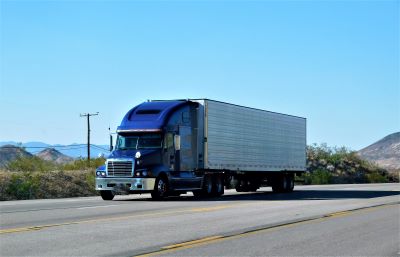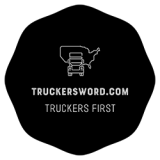In todays episode we address Overtime and federal leasing laws

Federal leasing laws, specifically CFR 376.11, are designed to regulate the leasing of commercial motor vehicles. These laws are in place to protect both the lessor and the lessee, ensuring that the terms of the lease are fair and equitable for both parties. CFR 376.11 outlines the requirements for written lease agreements, including the specific information that must be included in the agreement, such as the duration of the lease, the responsibilities of each party, and the payment terms.
In addition to outlining the requirements for written lease agreements, CFR 376.11 also addresses the issue of carrier identification. This is an important aspect of the leasing process, as it ensures that the carrier operating the leased vehicle is properly identified and has the necessary authority to operate as a motor carrier. By understanding and adhering to these federal leasing laws, both lessors and lessees can ensure that their lease agreements are in compliance with federal regulations, protecting themselves from potential legal issues in the future.
Overtime for Truckers: The Reality of Cheap Rates
One of the harsh realities of the trucking industry is the prevalence of cheap rates, which often result in truckers working long hours without fair compensation. Many trucking companies offer low rates for their services, which can lead to truckers feeling pressured to work overtime in order to make ends meet. This can have serious implications for both the physical and mental well-being of truckers, as well as for road safety.
The issue of cheap rates and overtime for truckers is a complex one, with many factors at play. However, it is clear that in order to address this issue, there needs to be a shift in the industry towards fair compensation for truckers. This may require changes to federal regulations, as well as a shift in mindset within the industry itself. By addressing the issue of cheap rates and overtime for truckers, we can work towards creating a more equitable and sustainable trucking industry for all involved.
Lack of Enforcement: DOT and FCMSA’s Role in Contract Laws
The Department of Transportation (DOT) and the Federal Motor Carrier Safety Administration (FMCSA) play a crucial role in enforcing contract laws within the trucking industry. However, there has been criticism of the lack of enforcement when it comes to ensuring that trucking companies are adhering to federal leasing laws and providing fair compensation to their drivers. This lack of enforcement has allowed some companies to take advantage of loopholes in the system, leading to unfair treatment of truckers and potentially unsafe working conditions.
In order to address this issue, there needs to be a renewed focus on enforcement from both the DOT and FMCSA This may require increased resources and manpower to ensure that companies are held accountable for their actions. Additionally, there needs to be greater transparency and communication between regulatory agencies and trucking companies, in order to ensure that federal leasing laws and contract laws are being followed. By addressing the lack of enforcement in this area, we can work towards creating a safer and more equitable working environment for truckers.
The Impact of Federal Leasing Laws on Truckers
The impact of federal leasing laws on truckers is significant, as these laws dictate the terms and conditions under which truckers operate leased vehicles. By ensuring that lease agreements are fair and equitable, federal leasing laws can protect truckers from potential exploitation by lessors. Additionally, these laws can provide truckers with a sense of security and stability in their work, knowing that their lease agreements are in compliance with federal regulations.
However, there are also challenges associated with federal leasing laws, particularly when it comes to enforcement and compliance. Some trucking companies may attempt to circumvent these laws in order to maximize their profits, leading to potential legal issues for truckers. In order to address these challenges, there needs to be a renewed focus on enforcement and accountability within the industry. By doing so, we can ensure that federal leasing laws have a positive impact on truckers, providing them with the protection and support they need to thrive in their profession.
The Need for Accountability in the Trucking Industry
Accountability is crucial within the trucking industry, particularly when it comes to federal leasing laws and fair compensation for truckers. Without proper accountability measures in place, there is a risk that some companies may take advantage of loopholes in the system, leading to unfair treatment of truckers and potentially unsafe working conditions. In order to address this issue, there needs to be greater transparency and communication between regulatory agencies and trucking companies, ensuring that federal leasing laws and contract laws are being followed.
Additionally, there needs to be consequences for companies that fail to adhere to federal regulations, in order to deter future violations. By holding companies accountable for their actions, we can work towards creating a safer and more equitable working environment for truckers. This may require increased resources and manpower within regulatory agencies, as well as a shift in mindset within the industry itself. By prioritizing accountability within the trucking industry, we can ensure that federal leasing laws are being followed and that truckers are being treated fairly.
Addressing the Challenges Faced by Truckers in the Current Regulatory Environment
Truckers face a number of challenges within the current regulatory environment, particularly when it comes to federal leasing laws and fair compensation. The prevalence of cheap rates within the industry can lead to truckers feeling pressured to work long hours without fair compensation, which can have serious implications for their physical and mental well-being. Additionally, there is a lack of enforcement when it comes to ensuring that companies are adhering to federal regulations, leading to potential exploitation of truckers by lessors.
In order to address these challenges, there needs to be a renewed focus on enforcement and accountability within the industry. This may require increased resources and manpower within regulatory agencies, as well as a shift in mindset within the industry itself. By prioritizing the well-being of truckers and ensuring that federal leasing laws are being followed, we can work towards creating a more equitable and sustainable working environment for all involved.
The Future of Federal Leasing Laws and Overtime for Truckers
The future of federal leasing laws and overtime for truckers is uncertain, particularly given the challenges currently facing the industry. However, there is an opportunity for positive change through increased enforcement and accountability measures. By prioritizing the well-being of truckers and ensuring that federal leasing laws are being followed, we can work towards creating a more equitable and sustainable working environment for all involved.
Additionally, there needs to be a shift in mindset within the industry itself, towards fair compensation for truckers and a commitment to following federal regulations. By addressing these issues head-on, we can work towards creating a brighter future for truckers within the industry. This may require collaboration between regulatory agencies, industry stakeholders, and advocacy groups in order to create meaningful change. By working together towards a common goal, we can ensure that federal leasing laws and overtime for truckers are being upheld, providing them with the protection and support they need to thrive in their profession.
we call out to every truckdriver in America to share comment and post.
WE call for a nationwide truck strike from December 1st through the 5th for better contracts, transparency, getting rid of brokers
If you are a professional driver we encourage you to follow us on you tube, together we can win this battle. It is going to take everyone to change the trucking industry








